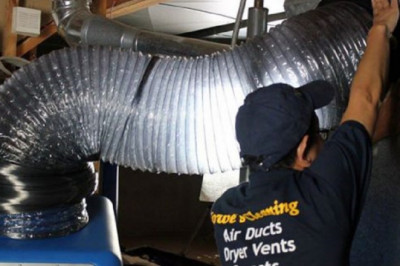views

The pandemic has to be the usher of the WFH revolution for many companies with Remote work & efficient Talent Management shooting up to the top of the priority list.
The pandemic has to be the usher of the WFH revolution for many companies with Remote work & efficient Talent Management shooting up to the top of the priority list.
Today, work from home, is a necessity. But this wasn’t the case pre-COVID. The number of organizations, embracing the idea of remote working and giving its internal customers the green light to work from wherever they want to, is dramatically low as compared to the number today. Hrtech has been kind enough to provide the industry occupants with all the resources that are needed to facilitate a smooth remote working environment. But, these resources went underutilized and organizations spanning across different industries happened to pay less attention to the upside of remote working.
 “I can honestly say that I’ve never experienced an event with such a drastic impact on how we live and work as the COVID-19 pandemic. Now more than ever, we must do the right things and be prepared to take steps beyond what we’re typically required to do.” – Frank Møllerop, CEO, Questback
“I can honestly say that I’ve never experienced an event with such a drastic impact on how we live and work as the COVID-19 pandemic. Now more than ever, we must do the right things and be prepared to take steps beyond what we’re typically required to do.” – Frank Møllerop, CEO, Questback

Let’s look at the pre-COVID WFH situation –
- A team is only as good as its manager. One major concern that majority of the managers had for letting their employees work remotely, was the lack of regular updates and awareness about what the team is doing. Basically, lack of trust in the team. Managers have always had a tough time trusting the employees about finishing the work perfectly, in their absence. This was one of the biggest roadblocks to facilitating WFH.

- Strategies surrounding legacy systems was another key factor that held back the management to embrace remote working and its attributes. For a long time, strategies were formed keeping in mind the availability of staff at the workplace, and deviating from that seemed uncomfortable.
- The feasibility myth wherein the C-Level Executives hesitated to invest in technology to make remote working an option.
Organizations, currently, are have not only become acceptive of this dynamic working model, but also are innovating creative ways to engage with the employees from afar. And majority of the credit goes to, not the team managers, not the company CEOs, but to the global pandemic of the novel Coronavirus.
Companies resorted to making arrangements for their employees to work from wherever they were, almost overnight, with the shelter at place orders put in motion. This was an indicator that makes it evident that this model wasn’t so difficult to adopt, if the firms and the management hadn’t been so receptive.
Employees have always wished to work from home. Multiple surveys have shown time and again that more than 80% of the employees wanted to work from home at least at some point of time.

These statistics have changed with the remote working model put to action in actuality, due to a number of reasons.
The present WFH model isn’t ideal or perfect, and Hrtech is offering an array of solutions to change that. Employee burnout has been at an all-time high with the mental of the staff being at an edge. They are working additional hours, working in conditions that are far from being suitable to work. To combat that, mental health chatbots that leverage AI and Analytics have been rolled out to understand the sentiments of the workforce and get the employees in touch with professionals that are trained to guide them through these times.
Health Surveillance, Self-service technologies, customized benefits, and collaborative tools are all now being appreciated by the organizations, to cater to the well-being of their employees.
The virus isn’t going anywhere anytime soon. Which only makes it necessary for every company and employee to harness the technology at hand for the betterment of all.
 “Every business and every HR professional in the world is facing this, and none of us had a lot of time to prepare. Every employee on your team is looking up to you for guidance, a sense of security and a sense of continuity.” – Nikos Moraitakis, CEO, Workable.
“Every business and every HR professional in the world is facing this, and none of us had a lot of time to prepare. Every employee on your team is looking up to you for guidance, a sense of security and a sense of continuity.” – Nikos Moraitakis, CEO, Workable.
For more such Updates Log on to www.hrtechcube.com












